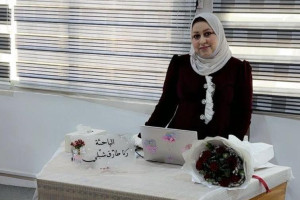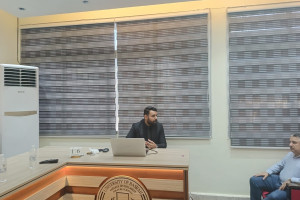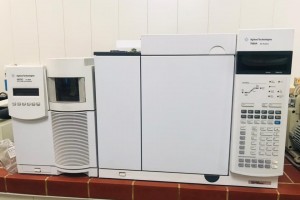
The two researchers, Professor Dr. Daoud Salem Abd and Assistant Professor Dr. Sahra Gharib Sayah from the Department of Chemistry at the College of Education for Pure Sciences - University of Basra published a paper entitled
Preparation, Characterization of some Thiazolidine Derived from Penicillamine and their Antioxidants Activity
(Preparation and characterization of some thiazolidinediones from penicillamine and the study of its antioxidant activity)
In a journal: Annals of the Romanian Society for Cell Biology
In the publishing house: Association of Cell Biology Romania
It is in the container: Scopus
Summary
Preparation of new compounds of thiazolidine-4-carboxylic acid (A13-A1) which resulted from condensation of penicillamine and some substituted aldehydes. All prepared compounds showed good results. All prepared compounds were diagnosed using IR and NMR spectrum, and their anti-oxidation activity was studied. For compounds (A13-A1) prepared in vitro using 2,2-diphenyl-1-picrylhydrazyl radical (DPPH). The results showed that the reaction of the prepared compounds (A13-A1) with DPPH depends on time and concentration. Since there was an increase in the radical scavenging activity when the concentration of the studied compound became higher, it was noted that the activity of the studied thiazolidine-4-carboxylic acid derivatives depends on the substituted groups on the substituted vinyl ring in position No. 2 of the thiazolidine ring, where it was found that compounds A7 (IC50) = 8.23 µg/ml), A6 (IC50 = 9.18 µg/ml) and A5 (IC50 = 18.61 µg/ml), are the most potent of the analogues. When compared with ascorbic acid, A7 was found to have slightly more activity than ascorbic acid ( AA) for the presence of three compensated hydroxyl groups on the phenyl ring capable of donating a proton to the free radical, and it was found that the compound A1 has weak activity due to the lack of a donor proton.








